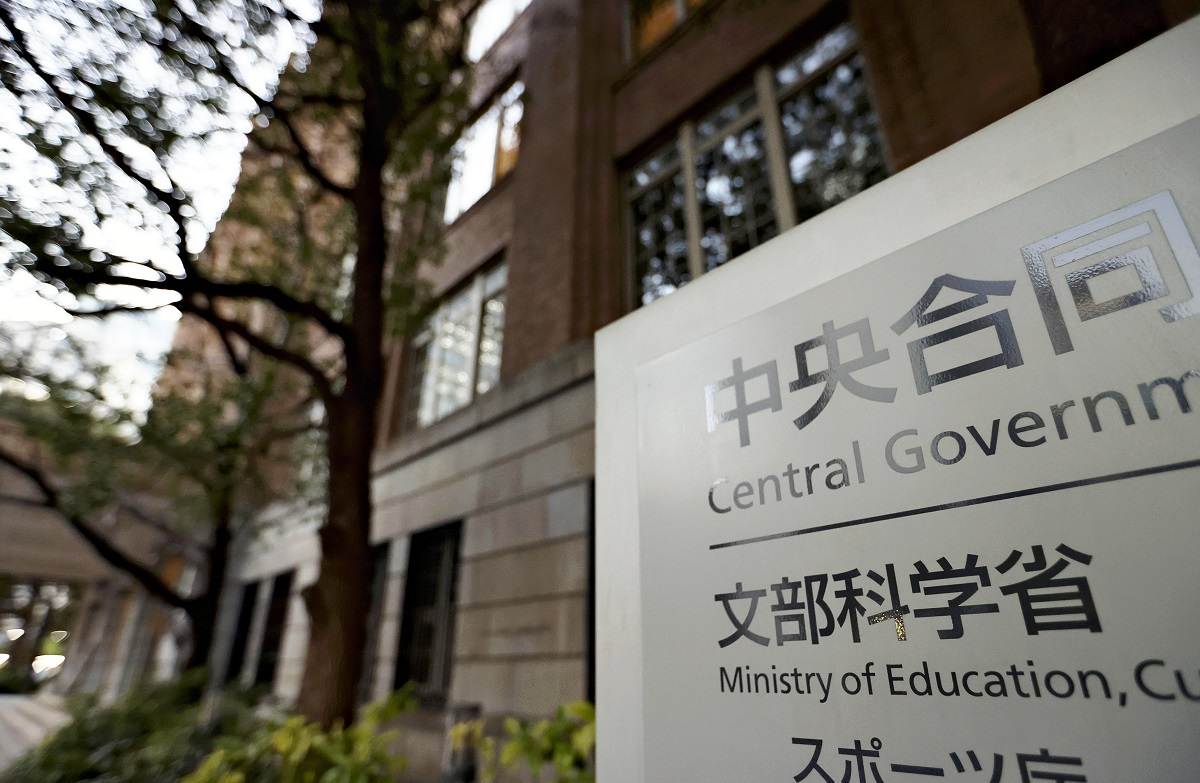More Japanese Textbooks Warn About Risks of Generative AI; Students Urged to Think About Internet’s Effect on Elections

The Education, Culture, Sports, Science and Technology Ministry
7:04 JST, March 27, 2025
Textbook screenings for mainly first-year high school students revealed a sharp increase in the number of books that address the risks of generative AI, the government has announced.
As the digitalization of society continues, generative AI was featured in 48 textbooks across eight subjects, including informatics, English and home economics. Several textbooks for civics dealt with how social media affects elections.
This is the second round of screenings to be based on the current curriculum guidelines.
According to a Tuesday announcement by the Education, Culture, Sports, Science and Technology Ministry, a total of 236 applications were received from 25 publishers to screen textbooks in 11 subjects, excluding specialized subjects. All of the books passed the ministry’s review.
These textbooks are to be used from the 2026 academic year starting in April 2026. They received 6,470 opinions during the screening process, including comments on incorrect descriptions.
In the previous screenings, only one English textbook mentioned generative AI, but this time many textbooks did so. They also referred to such risks as copyright infringement and fake information.
In the informatics textbook published by Nihon Bunkyo Shuppan Co., the mechanism of deepfakes, or sophisticated fake videos that use generative AI, is introduced along with illustrations.
Russia’s aggression against Ukraine and the military deployment of Israeli forces into Gaza were both mentioned in textbooks for subjects such as civics and modern and contemporary history. With regard to Japanese territory, all 34 textbooks used for civics and for geography and history mentioned the northern territories in Hokkaido, the Takeshima islands in Shimane Prefecture and the Senkaku islands in Okinawa Prefecture.
QR codes that direct students to digital teaching materials were included in 235 of the 236 textbooks that passed the screenings.
Content on social media
Following the introduction of the right to vote for 18-year-olds, many textbooks have content that encourages students to think about the impact of the internet and social media on politics and elections, and how to choose correct information.
The relationship between elections and social media was mentioned in a total of 12 textbooks on civics, informatics, and politics and the economy.
In a column encouraging students to be careful not to be fooled by fake news, Teikoku-Shoin Co. presented the example of a false image of a politician smiling at a press conference during a disaster that spread on social media. It aims to sound the alarm about the danger of deepfakes, which create false videos and images, thereby influencing public opinion.
In fact, in the gubernatorial election in Hyogo Prefecture in November last year, social media posts slandering prefectural assembly members who had pursued abuse of power allegations against the governor went viral.
“Now that 18-year-olds have been given the right to vote, we want high school students to learn about the dangers of the information about politics and elections that circulates on social media, which they are familiar with,” a Teikoku-Shoin official said.
Top Articles in Society
-

Producer Behind Pop Group XG Arrested for Cocaine Possession
-

Man Infected with Measles Reportedly Dined at Restaurant in Tokyo Station
-

Man Infected with Measles May Have Come in Contact with Many People in Tokyo, Went to Store, Restaurant Around When Symptoms Emerged
-

Woman with Measles Visited Hospital in Tokyo Multiple Times Before Being Diagnosed with Disease
-

Australian Woman Dies After Mishap on Ski Lift in Nagano Prefecture
JN ACCESS RANKING
-

Producer Behind Pop Group XG Arrested for Cocaine Possession
-

Japan PM Takaichi’s Cabinet Resigns en Masse
-

Man Infected with Measles Reportedly Dined at Restaurant in Tokyo Station
-

Israeli Ambassador to Japan Speaks about Japan’s Role in the Reconstruction of Gaza
-

Videos Plagiarized, Reposted with False Subtitles Claiming ‘Ryukyu Belongs to China’; Anti-China False Information Also Posted in Japan




















